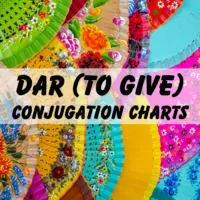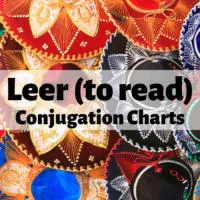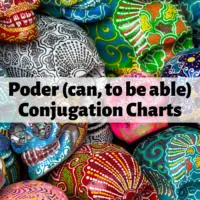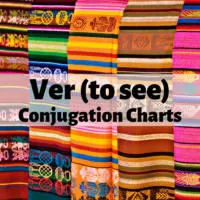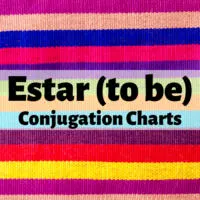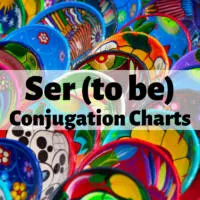Dar in means “to give” in Spanish and is an essential verb for all students. The conjugation of dar in the present tense is: Yo doy (I give), tú das (you give), él/ella/usted da (he/she gives; you give), nosotros damos (we give), vosotros dais (you give) and ellos/ellas/ustedes dan (they/you give).
The Spanish verb conocer translates to “to know”, in the context of knowing people and places. The conjugation of conocer in the present tense is: Yo conozco (I know), tú conoces (you know), él/ella, usted conoce (he/she knows, you know), nosotros conocemos (we know), vosotros conocéis (you now) and ellos/ellas/ustedes conocen (they/you know).
The Spanish verb saber means “to know” in the the context of factually knowing. The conjugation of saber in the present tense is: Yo sé (I know), tú sabes (you know), él/ella/usted sabe (he/she knows; you know), nosotros sabemos (we know), vosotros sabéis (you know) and ellos/ellas/ustedes saben (you/they know).
Venir (Meaning: To come) is a basic Spanish verb for all beginner students. The present tense conjugation of venir is: Yo vengo (I come), tú vienes (you come), él/ella/usted viene (he/she comes, you come), nosotros venimos (we come), vosotros venís (you come) and ellos/ellas/ustedes vienen (they/you come).
Leer (Meaning: to read) is an essential verb for all beginner students in Spanish. The conjugation of leer in the present tense is: Yo leo (I read), tú lees (you read), él/ella, usted lee (he/she reads; you read), nosotros leemos (we read), vosotros leéis (you read), ellos/ellas, ustedes leen (they read).
The verb querer means both to want and to love in Spanish. The conjugation of querer in the present tense is: Yo quiero (I want), tú quieres (you want), él/ella, usted quiere (he/she wants, you want), nosotros queremos (we want), vosotros queréis (you want) and ellos/ellas quieren (they want).
Poder (Meaning: Can, to be able to) is an essential Spanish verb. The conjugation of poder in the present tense is: Yo puedo (I can, am able), tú puedes (you can, are able), él/ella/usted puede (he/she can, is able; you can, are able), nosotros podemos (we can, are able), vosotros podéis (you can, are able) …
Ver (Meaning: to see) is an essential verb for all students. The conjugation of ver in the present tense is: Yo veo (I see), tú ves (you see), él/ella/usted ve (he/she sees; you see), nosotros vemos (we see), vosotros veis (you see) and ellos/ellas/ustedes ven (they see; you see).
How to conjugate estar Estar (Meaning: To be) is one of the most important verbs in the Spanish language. The conjugation of estar in the present tense is: Yo estoy (I am), tú estás (you are), él/ellá/usted está (he/she is, you are), nosotros estamos (we are), vosotros estáis (you are) and ellos/ellas/ustedes están (they/you are).
The Spanish verb ser means “to be” and is an essential verb for all beginner students. The conjugation of ser in the present tense is: Yo soy (I am), tú eres (you are), él/ella/usted es (he, she is; you are), nosotros somos (we are), vosotros sois (you are) and ellos/ellas/usted son (they, you are).

